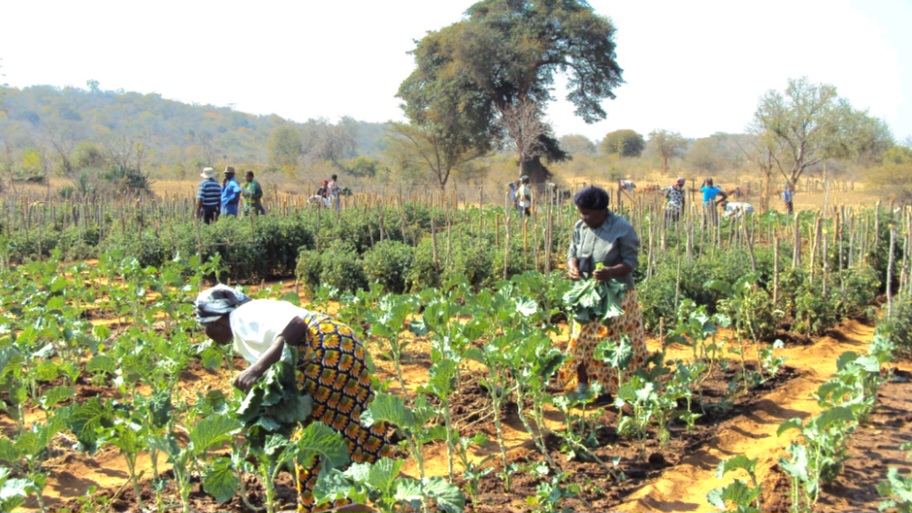Zimbabwe’s agro-based economy is taking a cue from a growing number of African countries and giving serious attention to harnessing modern science and biotechnology to enhance food security and nutrition.
“The government of Zimbabwe seeks to create an enabling environment to harness bio-technomlogy so as to meet the development needs of the country, whilst protecting the country’s natural resources, health – human and animal – as well as its economic wellbeing,” says Clever Muwuduri, senior director in the ministry of higher and tertiary education, innovation, Science and Technology development,.
Speaking on behalf of his permanent secretary Muwuduri says government is seriously investing in efforts for biotechnology research, development and application to broaden climate change mitigation and adaptation activities to include smart agriculture to include research and development in drought and disease –tolerant crops, gene and livestock varieties to enhance food security and nutrition.
To support development and growth of the nascent biotechnology enterprise, Zimbabwe’s Cabinet under President Emmerson Mnagagwa had given a nod to embark initially, on genetic engineered cotton (Bt Cotton) and through strong R & D support and carry out risk, risk assessment of application of other crops (GM).
GM crops are
According to latest research from the Africa Union’s development agency The New Partnership for Africa’s Development (AUDA-NEPAD) and the Government of Zimbabwe concluded engagements aimed at enhancing genome editing (GEd) capabilities and uptake as well as scaling up
NEPAD was adopted by African heads of State and government of the OAU in 2001 and was ratified by the African Union (AU) in 2002 to address Africa’s development problems within a new paradigm. NEPAD’s main objectives are to reduce poverty, put Africa on a sustainable development path, halt the marginalization of Africa, and empower women.
Zimbabwe, along a growing list of African countries, is signatory to the Cartagena Protocol on Biosafety The CPB is a legally binding (to those countries that have ratified it), international agreement, supplemental to the Convention on Biological Diversity (CBD), with the OBJECTIVE to protect the world’s biological diversity from the potential risks associated with the transfer, handling and use of living modified organisms (LMOs), that result from modern biotechnology.
It therefore focuses on potential environmental impacts and does not address food safety issues directly – although potential risks to human health may be taken into account. Currently, 170 countries are party to the Protocol.
The number of GM crops are gradually increasing with current commercial release of improved corn/maize, cotton and cowpeas.
Nigeria has approved insect and drought-tolerant maize while Ethiopia and the Sudan have approved insect and herbicide resistant cotton.
Other very promising crops – cassava VIRCA in Kenya and Rwanda and blight-resistant potatoes (Rwanda, Ethiopia) have under gone successful trials and are awaiting commercial release.
Cameron has tested under confined field trials (CFTs) insect-resistant and herbicide –tolerant cotton GlyTol x TwinLink.)
Today 14 African Union member states have biosafety Acts and are conducting research at CFTs ials and have biosafety laws.
While eight other members have biosafety laws although they are yet to conduct CFTs.
Dr Woldeyesus Sinebo, who recently led an AUDA-NEPAD on a working visit to Zimbabwe, last week, told this publication Biotechnology is one option in mitigating food insecurity.
“There really is little evidence to connect genetic engineering crops and their associated technologies with adverse environmental problems,” he stresses.
In light of the above active and positive developments across the globe, the country has engaged and got support from the Africa Union towards biotechnology research and development.
Dr Silas Obukosia, from the AUDA, gave an overview of the perceived risks explaining away the unfounded fears underlining the fact that genetic technologies have played roles in enhancing food supplies and conserving the environment.
“Genetic engineering techniques are rapidly advancing adding new tools such as gene editing and gene drives,” he says, explaining: “Plant and animal genetics and genetic engineering will remain a key component of global food security, peace, and prosperity for the foreseeable future.”
Zimbabwe’s government is confident that stakeholders will use the knowledge gained for the judicious application of biotechnology with NBA chief executive and registrar Dr Deckster Savadya saying inclusive and targeted engagement is ongoing.
“The implementation approach would require providing policy and capacity-strengthening support in genome editing in agriculture to AU member states,” he adds.
“Intervention services would include expert consultations with (African) governments and research and development institutions, in-country and regional training workshops and knowledge-sharing opportunities and linkages within and outside the continent.”




